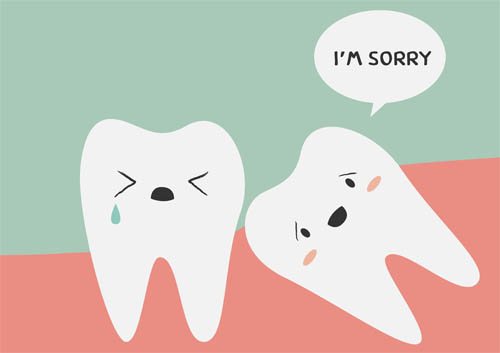Diabetes and Dental Care
August 25th, 2021

Diabetes is a disease that affects the health of the entire body, including, of course, your mouth, gums, and teeth. We are trained to look for issues that might arise in our patients with diabetes, and are eager to help you maintain your dental health. What do we consider in order to give you the best treatment?
Your Teeth
Dry mouth can be a problem for diabetic patients, whether caused by blood sugar levels or medication, and this condition can lead to tooth decay. When we produce saliva, it not only helps wash away sugar in our mouths, it also helps remove the acids sugars produce which attack our enamel and lead to cavities.
Your Gums
People with diabetes are at higher risk for gum disease. With diabetes, the body is more susceptible to infection and finds it harder to fight bacteria. Early gum disease, called gingivitis, is inflammation caused by the body’s reaction to bacteria. Periodontitis, serious gum disease, leads to infections that can cause bone and tooth loss.
Other Oral Concerns
Dry mouth can lead to mouth ulcers, oral thrush, sores, and infections. And oral infections of any kind can be slower to heal when you have diabetes. We will give careful attention to any concerns you might have for your oral health, and will work with you to prevent any future problems.
Preventive dental care is important for all our patients, and we have special suggestions for you to help maintain your dental health and reduce the possibility of dental complications. Diabetes can lead to oral problems, and oral infections can in turn cause problems with controlling blood sugar, so a healthy mouth can lead to better health in general.
- Home Care
If dry mouth is a problem, talk to us about possible causes and treatments. Hydrate throughout the day, and avoid foods or beverages that lead to dehydration. Talk to us about the best products for use at home to prevent dry mouth.
Brush and floss after meals to reduce the presence of harmful bacteria and prevent the plaque buildup that leads to gum disease.
Above all, monitor your blood sugar carefully to ensure your body is at its best when combatting infection or when healing.
- Professional Dental Care
Be sure to visit our Buffalo, NY office at least twice a year for a full examination and a professional cleaning. We can reduce the plaque that leads to gingivitis and more serious periodontal infection. We can monitor your oral health and recommend solutions for problems such as dry mouth. We will make your appointments based on what is best for your schedule. If any type of oral surgery is needed, we will schedule it with an understanding of the importance of healthy blood sugar levels for healing and recovery.
It’s important to make Dr. Jason Jones part of your health support system. If you have diabetes, let us know. We will work with you to monitor the well-being of your teeth and gums and to suggest ways to promote your overall oral health. Let’s work together for healthy, happy smiles!



